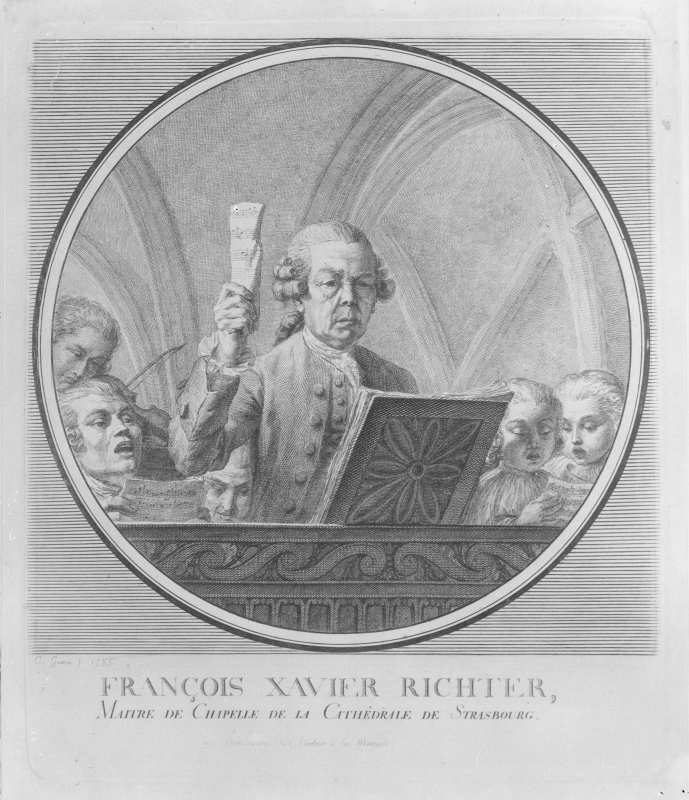Franz Xaver Richter (1709–1789) is primarily known to today’s music lovers as one of the major representatives of the Mannheim School. Since 1906, the year that saw the publication of the crucial study by the German musicologist Hugo Riemann Der Stil und die Manieren der Mannheimer, the term has been applied to a group of composers who served at the court of Elector Karl Theodor (1742–1799) in Mannheim, who played an important role in the development of Classicism.
Richter was probably born in Holleschau (today Holešov), Moravia, at the time part of the Habsburg Monarchy, where he lived with his parents while studying with the Jesuits in the town of Ungarisch Hradisch (Uherské Hradiště). In the 1730s, Count Franz Anton Rottal kept his own court orchestra in Holleschau, hence the gifted young Richter must have been afforded the opportunity to acquaint himself with the contemporary trends in music. From 1736, Richter worked in Schlitz, Ettal and Kempten. In 1746, he joined Elector Karl Theodor’s orchestra in Mannheim, where he served as a singer of the court opera, as well as a violinist and, above all, composer. Evidently enjoying considerable respect on the part of his employer, he was sent on several trips across Europe, especially in connection with the publication of his compositions. In 1769, he was appointed Kapellmeister at the Cathédrale Notre-Dame in Strasbourg, where he was also in charge of of the city’s concerts.
Czech Ensemble Baroque set itself a long-term goal of discovering and restoring the music of significant Czech native F. X. Richter. So far we have recorded Requiem Es Dur (as a world´s premiere) for Supraphon recording company, passion oratio Deposizione Dalla Croce, Te Deum and an oboe concert.

